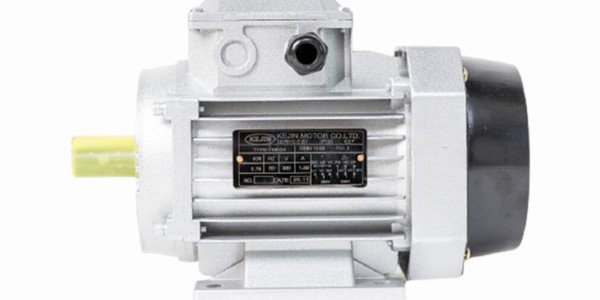The main cause of mechanical noise: The mechanical noise generated by the three-phase asynchronous motor is mainly the bearing fault noise. Under the action of load force, each part of the bearing is deformed, and the stress caused by rotational deformation or frictional vibration of transmission parts is the source of its noise. If the radial or axial clearance of the bearing is too small, the rolling friction will increase, and a metal extrusion force will be generated during movement. If the gap is too large, it will not only cause the bearing to be stressed unevenly, but also change the air gap between the stator and the rotor, thereby increasing noise, temperature rise and vibration. The bearing clearance is 8-15um, which is difficult to measure on site and can be judged by hand feeling.
When selecting bearings, you should consider: (1) The gap reduction caused by the cooperation of the bearing with the shaft and the end cover. (2) When working, the temperature difference between the inner and outer rings causes the gap to change. (3) The gap between the shaft and the end cover changes due to the different expansion coefficients. The rated life of the bearing is 60000h, due to improper use and maintenance, the actual effective service life is only 20-40% of the rated value.
The cooperation between the bearing and the shaft adopts the basic hole, the tolerance of the inner diameter of the bearing is negative, and the cooperation is tight. Bearings and journals can easily be damaged during assembly without the proper technique and tools. Bearings should be removed with a special puller. 

Judgment of bearing noise:
1. There is too much grease in the bearing, there will be liquid hammer sound at medium and low speed, and uneven foam sound at high speed; this is due to the intensified friction of internal and external molecules under the agitation of the ball, resulting in the dilution of grease of. Severely diluted grease leaked onto the stator windings, preventing it from cooling and affecting its insulation. Typically, fill 2/3 of the bearing space with grease. There will be a sound when the bearing is out of oil, and there will be a squeaking sound with signs of smoking at high speed.
2. When the impurities in the grease are brought into the bearing, intermittent and irregular gravel sounds may be produced, which is caused by the impermanence of the position of the impurities driven by the balls. According to statistics, grease pollution accounts for about 30% of the causes of bearing damage.
3. There is a periodic “click” sound inside the bearing, and it is very difficult to turn it by hand. It should be suspected that there is some erosion or tear on the raceway. Intermittent “choking” sounds in the bearings, manual rotation may have unfixed dead spots, indicating broken balls or damaged ball holders.
4. When the looseness of the shaft and bearing is not serious, there will be discontinuous metal friction. When the bearing outer ring crawls in the end cover hole, it will produce strong and uneven low-frequency noise and vibration (which may disappear after radial loading).
Post time: Feb-09-2023